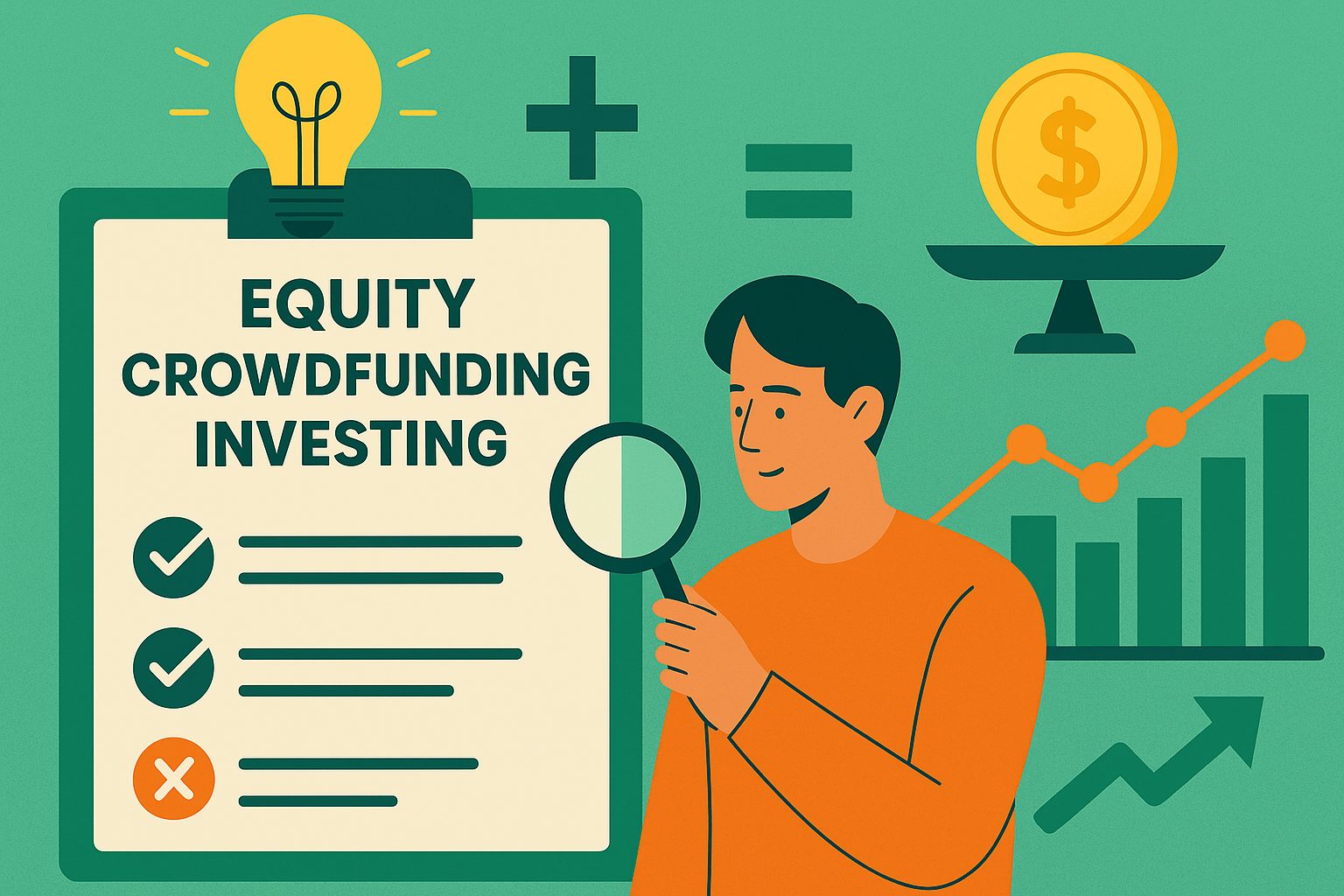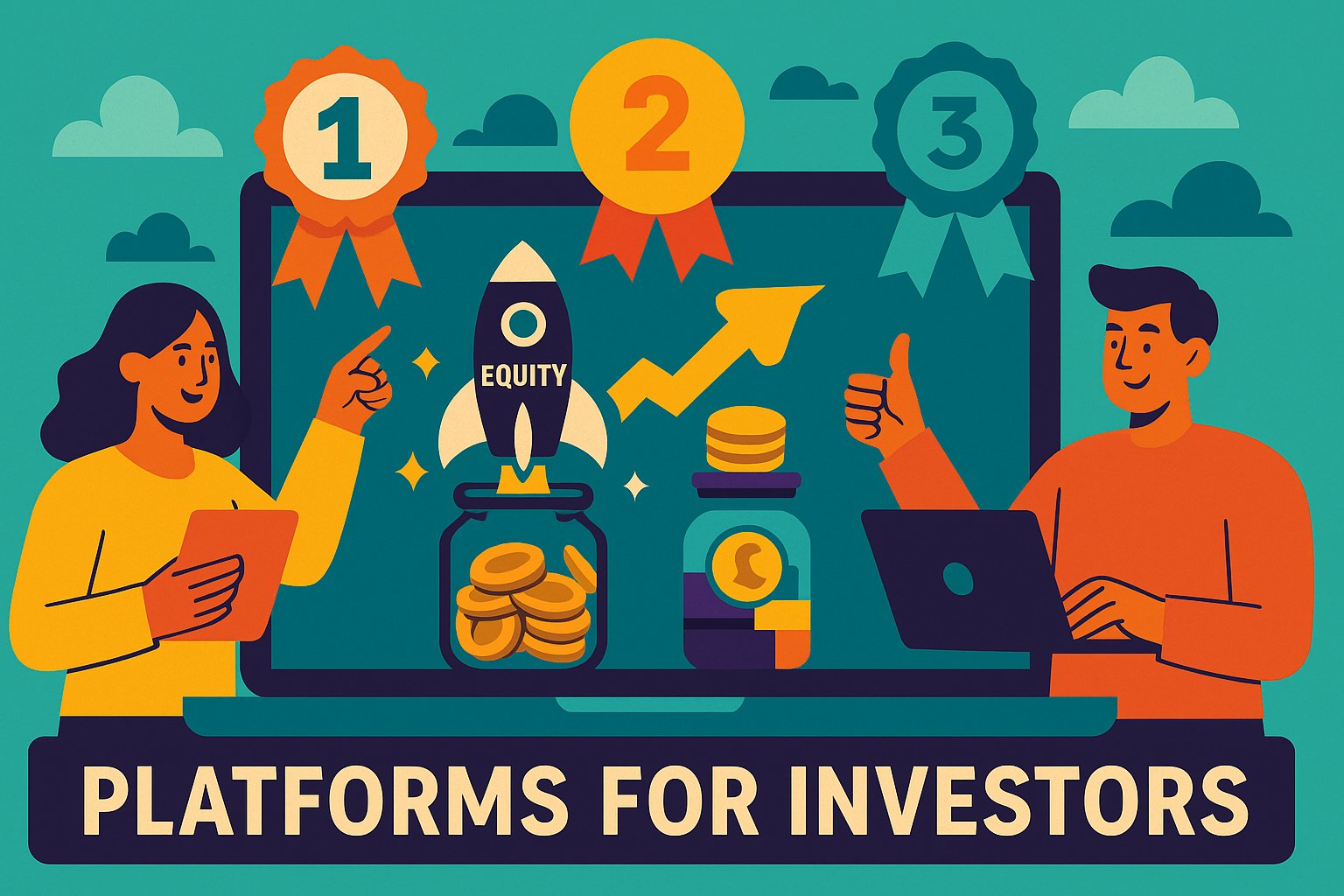Embracing the Future of Early-Stage Investing
Imagine stepping onto the ground floor of tomorrow’s groundbreaking companies, long before Wall Street firms or venture capital giants catch wind of the next big breakthrough. Investing in crowdfunded startups offers precisely this tantalizing prospect—granting individual investors the ability to seed innovation, champion disruptive ideas, and potentially reap the financial rewards typically reserved for a select few. As traditional barriers between entrepreneurs and backers dissolve, equity crowdfunding platforms empower everyday investors to participate in seed and early rounds, fueling ventures that might transform industries. Whether you’re driven by the thrill of discovery, the desire to diversify beyond public equities, or the aspiration to align your capital with your passions, crowdfunded startups present a powerful avenue. In this comprehensive exploration, we’ll unveil the compelling reasons to consider these investments, from the potential for outsized returns and portfolio diversification to the democratization of financial opportunity and the deep sense of community that accompanies supporting innovative founders. By the end of this journey, you’ll understand not only why investing in crowdfunded startups may belong in your wealth-building playbook, but also how to navigate this dynamic landscape with confidence and purpose.
The Rise of Equity Crowdfunding: A New Investment Paradigm
Equity crowdfunding emerged from legislative reforms designed to democratize capital markets, most notably through the U.S. JOBS Act of 2012. Before these changes, early-stage private investments were largely the province of accredited investors and institutional funds. Today, platforms such as SeedInvest, Republic, and Wefunder bridge the gap, enabling non-accredited and accredited individuals alike to access private deals with modest minimums. This sea change has fundamentally altered the investment landscape: instead of passively observing innovation unfold from the sidelines, everyday investors can now share in the journey from prototype to market. As crowdfunding portals proliferate globally, the democratization ethos extends across borders, empowering founders to pitch concepts directly to backers around the world. This paradigm shift not only accelerates the pace of startup funding but also fosters a more inclusive ecosystem where diverse voices can contribute capital, insights, and enthusiasm to promising ventures.
Fueling Innovation: Backing Visionary Founders
Crowdfunded startups often originate with bold, unconventional ideas—products or services that challenge incumbent players, address underserved markets, or leverage emerging technologies. By investing early, you become more than a financier; you transform into a partner in innovation. Your capital helps founders refine prototypes, expand operations, and execute go-to-market strategies that might otherwise stall for lack of resources. This active role can be profoundly rewarding, as you witness your investment translate into tangible progress: prototypes evolving into polished products, pilot projects yielding critical data, and beta users morphing into enthusiastic brand advocates. Unlike passive investments in large corporations, crowdfunded startup stakes often come with direct communication channels—founders share regular updates, solicit feedback, and invite backers into the development process. This closeness not only nurtures entrepreneurial success but also forges a meaningful connection between investors and the companies they support.
Potential for Outsized Returns: Capturing Early-Stage Upside
Historically, the greatest financial windfalls in venture capital stem from early entry into high-growth startups that later achieve massive valuations. Iconic examples include early investors in companies like Uber, Airbnb, or Zoom—ventures that started as small teams in garages or dorm rooms. By participating in crowdfunded rounds, individual investors gain access to precisely these early opportunities. While many startups fail—a reality of high-risk investing—the potential payoff from a single breakout success can dwarf modest losses across a broader portfolio. This risk-reward asymmetry lies at the heart of venture investing: a relatively small allocation to early-stage ventures can, in theory, generate returns multiple times your original capital. Equity crowdfunding platforms codify this principle, offering a suite of startups across industries and stages, each with detailed pitch materials, financial projections, and market analyses to help investors identify candidates with runaway potential.
Diversification Beyond Public Markets: Balancing Your Portfolio
Conventional wisdom urges investors to diversify across asset classes—stocks, bonds, real estate, and cash equivalents—to mitigate volatility. Crowdfunded startups introduce a distinct asset category: private equity. These investments exhibit low correlation with public equities, meaning they often move independently of stock market cycles. Adding startup stakes to your portfolio can enhance the overall risk-return profile, smoothing out performance when broader markets experience turbulence. Moreover, the variety of offerings—ranging from biotech innovations tackling healthcare challenges to consumer tech apps redefining daily routines—enables thematic diversification. By carefully allocating a portion of your net worth to early-stage startups, you spread risk across multiple ventures and sectors, increasing the likelihood that strong performers offset weaker ones. This strategic inclusion of private assets can bolster long-term returns and reduce reliance on any single market trend.
Democratizing Access: Empowerment Through Smaller Minimums
One of the most revolutionary aspects of equity crowdfunding is accessibility. Traditional venture deals often require six- or seven-figure minimums, effectively locking out all but the wealthiest individuals and institutional funds. Crowdfunding platforms shatter this barrier by permitting investments as low as $100 or $500. This affordability invites a broader demographic—from young professionals to retirees—to participate in funding grassroots innovation. The result is a more vibrant funding ecosystem, fueled by a diverse array of perspectives and experiences. Inclusive access also amplifies the social impact of investment: communities can rally behind local startups addressing regional needs, while global backers can support ventures tackling universal challenges like climate change or medical breakthroughs. In essence, crowdfunding transforms investing from a niche activity into a collective endeavor, where passion, insight, and community spirit converge to fuel the next generation of trailblazing companies.
Engaging Communities: Beyond Financial Returns
Investing in crowdfunded startups often transcends mere financial motivation. Platforms foster a sense of belonging, connecting backers with shared interests—be it sustainability, social impact, or cutting-edge technology. Through pitch webinars, Q&A sessions, and online forums, investors exchange ideas, debate strategies, and build networks around emerging ventures. Founders, in turn, gain valuable market feedback, brand ambassadors, and early adopters. This symbiotic relationship elevates the investment experience: you’re not just buying shares—you’re championing a vision and contributing to a vibrant community of like-minded supporters. The emotional resonance generated by this engagement can deepen your commitment to a startup’s success, motivating you to offer introductions, mentorship, and even further funding down the line. In an era where authenticity and brand loyalty matter, this community-driven model stands apart from faceless institutional fundraising.
Mitigating Risks: Strategies for Responsible Participation
The promise of high returns must be tempered with a clear-eyed appreciation of risks inherent in startup investing. Crowdfunded ventures may face regulatory hurdles, technical challenges, or stiff competition, and many never reach commercial viability. To mitigate these risks, prudent investors adopt a measured approach: they perform thorough due diligence by scrutinizing management experience, market size assumptions, and product-market fit evidence. Reviewing a startup’s financial runway, customer traction, and competitive landscape helps distinguish realistic projections from overly optimistic forecasts. Spreading investments across multiple startups and industry verticals further reduces exposure; even if some companies falter, the success of a few can drive overall portfolio growth. Additionally, monitoring post-investment updates and participating in community discussions alert you to emerging issues—allowing proactive decisions, such as participating in follow-on rounds or, in rare cases, pivoting away from stagnant ventures. By blending rigorous analysis with diversification, you balance ambition with discipline, positioning your crowdfunded investments for the best chance of success.
Regulatory Framework: Ensuring Transparency and Protection
Equity crowdfunding operates under the watchful eye of securities regulators, ensuring a baseline of transparency and legal recourse. In the United States, Regulation Crowdfunding mandates that startups provide audited financial statements, detailed risk disclosures, and information about key executives. These requirements level the informational playing field, giving you a clearer view of a company’s prospects and pitfalls. Platforms must register with the SEC and adhere to anti-fraud provisions designed to protect investors from misleading claims. While regulatory frameworks vary by country, many jurisdictions now enforce comparable safeguards, from investor caps for non-accredited participants to mandatory reporting intervals. This evolving landscape underscores the importance of choosing reputable platforms that uphold best practices in disclosure, compliance, and investor education. By investing through well-regulated portals, you benefit from a structured environment that strives to balance startup agility with investor protection.
Getting Started: Crafting Your Crowdfunding Strategy
Embarking on the journey of investing in crowdfunded startups begins with defining your own goals and risk tolerance. Determine how much of your overall portfolio you’re comfortable allocating to private early-stage ventures, recognizing that returns may take years to materialize. Next, explore multiple platforms to compare deal flow, minimum investment amounts, and sector specializations. Dedicate time to examining each startup’s pitch materials, financial models, and founding team backgrounds. Don’t hesitate to engage with founders—ask pointed questions about product development milestones, customer acquisition strategies, or exit plans. As you build conviction in select opportunities, ensure that your investment cadence aligns with upcoming funding windows and personal liquidity needs. Over time, refine your process by tracking the performance of past investments, learning which indicators most accurately predicted success, and adjusting your due diligence criteria accordingly. This iterative strategy transforms sporadic bets into a coherent, evolving playbook for long-term participation in the crowdfunded startup ecosystem.
Seizing the Moment in Crowdfunded Investing
Investing in crowdfunded startups represents a bold departure from conventional asset management, inviting individual investors to engage directly with the innovators shaping tomorrow’s markets. From potential outsized returns and portfolio diversification to the profound satisfaction of supporting visionary founders, the rewards extend far beyond a traditional equity stake. By harnessing the power of small-minimum platforms, conducting disciplined due diligence, and embracing community collaboration, you position yourself at the vanguard of entrepreneurial success. As regulatory frameworks continue to mature and crowdfunding platforms innovate, this avenue of investment promises to grow ever richer in opportunity. Whether you’re a seasoned investor seeking fresh horizons or an ambitious newcomer eager to back your first venture, now is the time to explore why crowdfunded startups deserve a place in your financial journey—and to stake your claim in the next wave of transformative enterprises.




